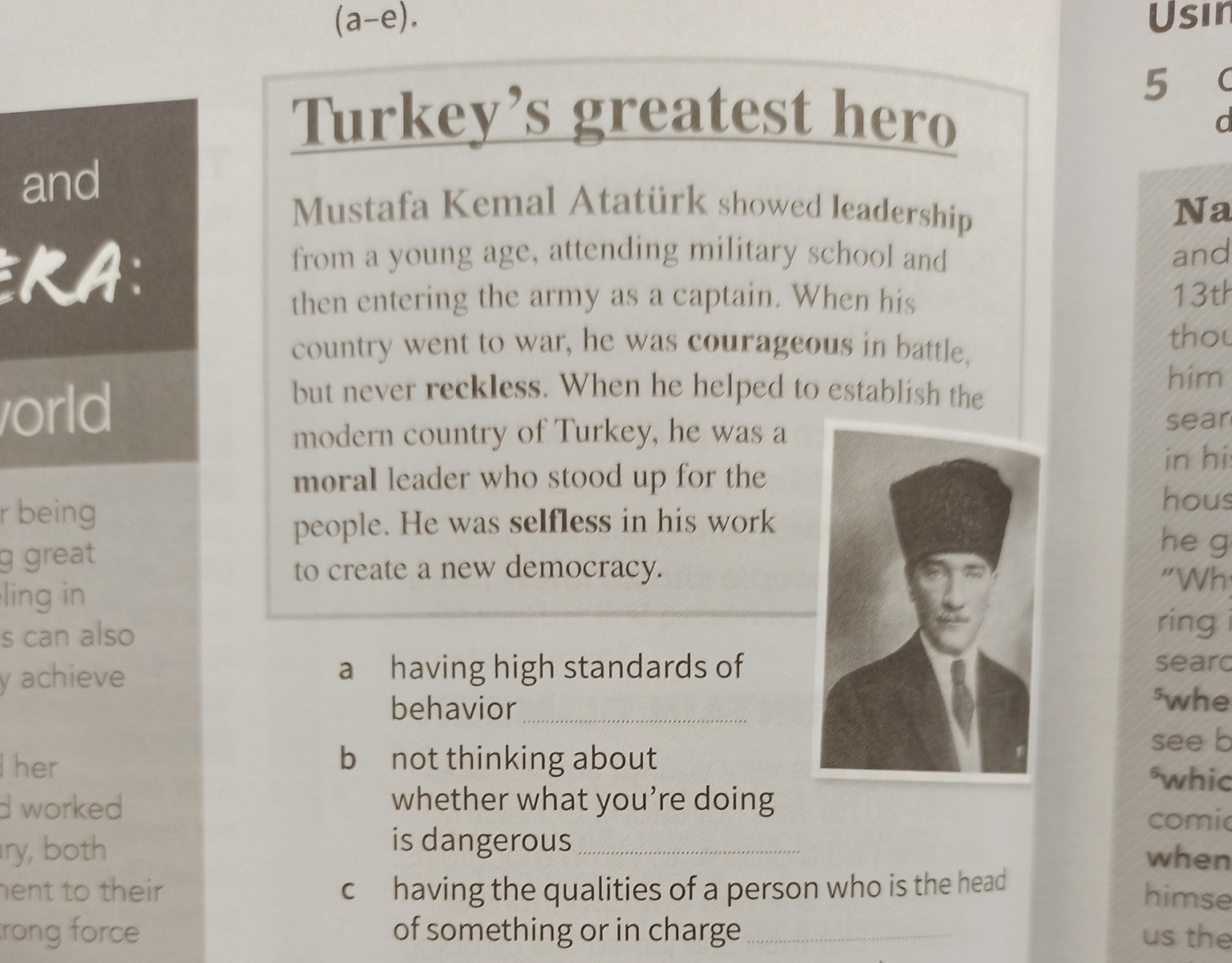The Education ministry on Wednesday announced it will withdraw an English textbook following strong reactions to instructions issued earlier in the day to tear out a page on Kemal Ataturk, which it said was unacceptable.
Secondary school teachers were seeking answers from the education ministry over an instruction to “tear out” the page of the book for second grade lyceum students, which referred to both Turkey’s founder Mustafa Kemal Ataturk and artist Frida Kahlo.
The issue came to the fore after an English teacher posted the instruction in a group on Facebook, which sparked outrage on social media and beyond.
The page in question contains a references to Ataturk, the first president of the newly formed Turkish Republic one century ago, in an exercise called ‘Turkey’s greatest hero’. It also has an exercise about the famous Mexican communist artist Frida Kahlo and her husband Diego Rivera.
The ministry said it only saw the Ataturk reference on Tuesday and announced it will temporarily withdraw the book over the “unacceptable” reference, citing crimes against minorities.
The ministry justified its decision saying the reference in question praises Attaturk as an example of leadership.
“Ataturk is directly connected with crimes against humanity such as the Armenian Genocide, which is unequivocally condemned by our country as well as by the United States, France and many others. Crimes equal to the genocide of the Pontians and Assyrians, but also the criminal ‘ethnic cleansing’ of Hellenism in Smyrna and elsewhere,” the announcement said.
Modern education, the ministry said, is based on respect for human rights and does not compromise with attempts to embellish such historical crimes.
The ministry also came under fire over choosing to have this reference torn from the book rather than use it as an opportunity to promote critical thinking. In its statement the ministry said, “the English language course is not offered to nor is it expected to cover such topics or to promote critical thought”.
Commenting on the incident, Turkish Cypriot leader Ersin Tatar said that “Ataturk was known internationally as a great leader. It does not make sense to remove the page. Once again, I condemn such actions”.
Secondary education teachers union Oelmek received complaints over the incident, while its members took to social media to confirm what had happened.
Its head, Costas Hadjisavvas, told the Cyprus Mail that the issue is very worrying.
“Better monitoring should have been done before ordering the books to avoid the incident. There are some sensitivities concerning Cyprus which we must pay special attention to,” he added.
Even though the ministry said it only noticed the reference on Tuesday, an English teacher commented on the incident through her social media account on Monday, describing it as unacceptable.
Teachers said they had received an urgent email message from the education ministry, asking them to “tear out” page 36 from the Oxford Discover Futures 3 Workbook before handing them to high school students.
“An instruction sent today, September 6, by the ministry of education urges all English teachers to remove page 36 from the English Workbook, and in particular to be torn out before being given to students,” an English teacher said on social media.
She said the text, which simply presents Ataturk as “Turkey’s most important hero (by the way, we all know the particular leader’s importance for Turks) should become the starting point for interactive discussion with our pupils where, using other sources and critical thought, they draw their own conclusions”.
Akel later condemned the incident, describing it as anti-pedagogic, adding that such actions are common to the illegal regime in the north.
At the same time, Akel MEP Niyazi Kizilyurek described the intervention of the ministry as improper.
“The teaching of history in our country is problematic and significant changes are required in the framework of the Council of Europe’s directives,” he said.
“Recently we have seen the Turkish government intervene in the teaching of history in Turkish Cypriot schools asking for teaching that strengthens pupil’s ‘nationalism’,” he added.







Click here to change your cookie preferences